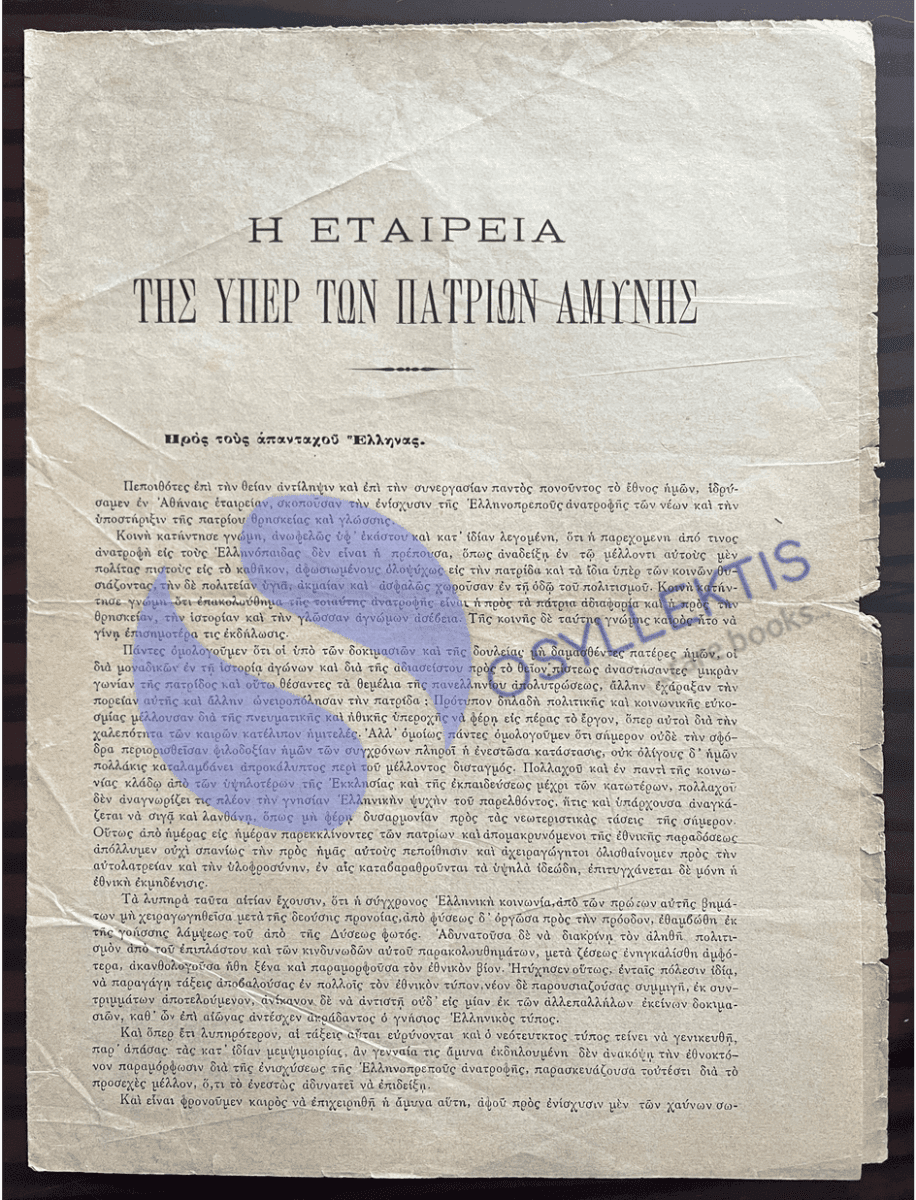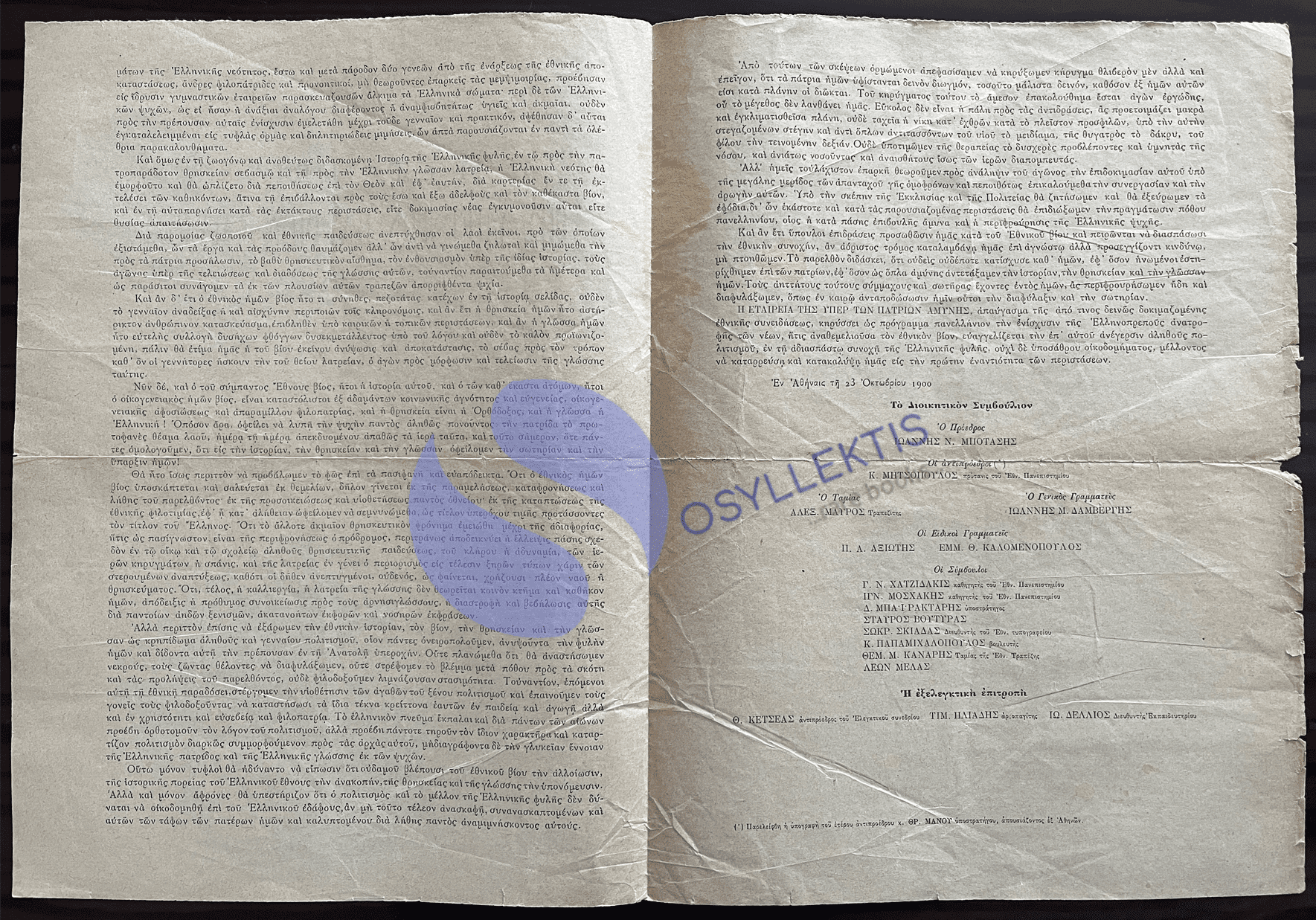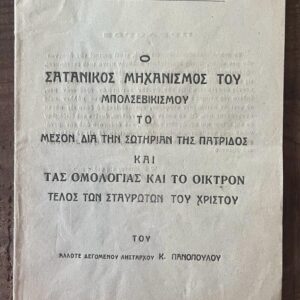Rare, 1900 Greek Document, Society for the Defence of the Fatherland, I. Botasis, K. Mitsopoulos, I. Damvergis
120.00€
Description
Rare Greek Document
from 1903
A Call
by the
Society for the Defence of the Fatherland
upon Greek Citizens
to
Safeguard religion and the national language
protecting the youth from Western influences
Dated Athens, October 23, 1900
3 Pages
25 cm x 34 cm
The Society for the Defence of the Fatherland promoted irredentism, militarism, and nationalism, emphasizing loyalty to the state, the protection of religion, and the preservation of the national language (Katharevousa meaning the pure language). It also condemned foreign influences. Its board members included I. Botasis, K. Mitsopoulos, A. Mavros, and I. Damvergis.
Ioannis Botasis (1839 – 1924) was a Greek politician and director of the Historical and Ethnological Society of Greece.
Konstantinos M. Mitsopoulos (1844 – 1911) was a Greek university professor of physics and mathematics in the 19th century. He was the first specialist geologist and mineralogist in Greece, a proponent of Experimental Mineralogy and one of the main contributors to the promotion of natural sciences in Greece.
Ioannis Dambergis (1862-1938) was a Greek writer and journalist. He served as president of the National Theatre (1932) during the government of Eleftherios Venizelos. He wrote mainly prose work which is chronologically placed in the literary generation of 1880 and belongs to the Katharevousa linguistic faction. His most important work is the collection of short stories My Cretans which depicts characteristic images of Cretan life.
The Greek language question (to glossikó zítima) was a dispute about whether the vernacular of the Greek people (Demotic Greek) or a cultivated literary language based on Ancient Greek (Katharevousa) should be the prevailing language of the people and government of Greece. It was a highly controversial topic in the 19th and 20th centuries, and was finally resolved in 1976 when Demotic was made the official language. The Church of Greece and other churches of the Greek Orthodox tradition still use Katharevousa in official communications.
Additional information
| Languages | Greek |
|---|








